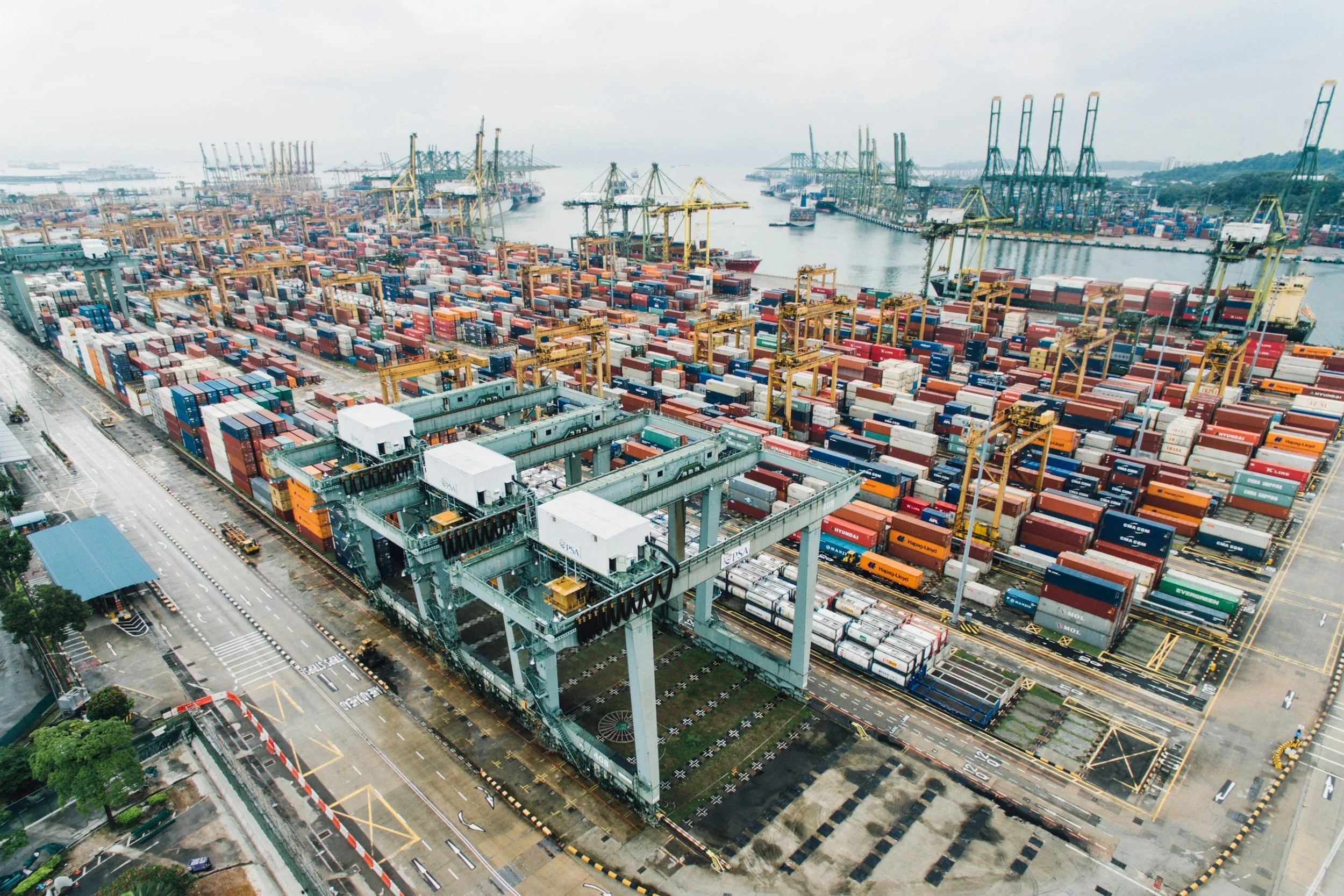Industry Insights: Antoon van Coillie from ZULU Associates
In the Industry Insights blogpost series, we sit down with each SASHA member to find out what drives them in their work and what challenges they face.
Here we speak to Antoon van Coillie, CEO of ZULU Associates, a company promoting zero emission shipping.
Antoon van Coillie, ZULU Associates CEO
For many who are working to decarbonise shipping, the goal is to minimise the changes needed to make our existing fleets capable of adopting green alternative fuels. But ZULU Associates’ approach is radically different – as company CEO Antoon van Coillie explains. “We rethink the whole shape of the ships,” says Antoon. Founded in 2019, ZULU aims to bring short sea and inland ships to zero emissions. “What is often forgotten in the question of sustainability is that if people continue doing what they've always been doing, it's very hard to compete with non-fossil fuel.”
Getting ships ready to go green
Such a disruptive approach may seem drastic compared to retrofitting old ships, but ZULU sees the fuel as just one factor in the transition. “They need to be as energy efficient as possible, as opposed to carrying as much cargo as possible,” Antoon says. The second step is to make everything on the vessels electric, from the propulsion to the on-board systems. Closely related to this is the third part: “The power comes in modular containers, which can be switched. They are put on the vessel, not in the vessel,” Antoon explains. This gives the vessel great flexibility, as it can use any source of energy, be it green hydrogen fuel cells or solar-charged batteries.
Indeed, this nimbleness creates a possible synergy with communities lying along Europe’s inland waterways. Companies and residents use the space they have to locally produce solar and wind energy even when there is no demand, storing the electricity in batteries. These could then, permitted by ZULU’s modular energy vessel design, be loaded onto boats.
The same applies for green hydrogen, since the electricity produced along waterways, Antoon notes, is also being used for the gas’s production. However, since green hydrogen will be most valuable for open sea shipping (rather than short sea or inland), and its storage and transportation brings extra costs, it is more likely that it will be produced and distributed at ports and big terminals rather than along canals.
The final thing that sets ZULU’s shipping redesign apart from the norm is that they envisage vessels being unmanned. The two benefits of this for decarbonisation, as ZULU sees it, would be to improve efficiency by using AI to determine the best routes, and secondly to reduce operational costs and therefore close the gap between this green solution and fossil fuel shipping: “If you make vessels unmanned, you change the economic equation of the sector,” Antoon explains, “and therefore you're able to pay for the more expensive, non-fossil fuel propulsion systems.”
ZULU MASS, a zero emission propulsion cross-channel vessel.
A rare moment for big change
A core component of climate justice is the just transition – ensuring that nobody is left behind from the great shifts underway to get us to a carbon neutral world. Employment is an area where this concern is particularly pertinent, and reducing inland and short sea shipping crews presents obvious sticking points. But Antoon suggests that the shift to unmanned shipping dovetails on a natural change already occurring in this profession.
“The average age of the inland shipping crews is over 50 – it’s a difficult job and few young people are entering into it,” he says. “Green matters aside, the sector would have to confront the challenge of an aging workforce anyway.” Unmanned shipping presents an opportunity to resolve both the demographic and pollution challenges with the same solution. Plus, the renewing of large chunks of these fleets will create jobs in manufacturing and construction, and their operation will demand on-land jobs such as maintenance and loading or unloading modular fuel units and cargo onto the ships at port. On top of this, the shipping transition in general is expected to bring about a wave of new jobs, as is the expected ramp up in green hydrogen production.
Inland shipping crews are not the only aging part of the industry – the ships themselves are too. “The majority of the inland and short sea vessels in Western Europe are on average 40, 50, 60 years old,” Antoon says. “We need to replace, in my opinion, about 70% of the fleet. They are near-obsolete, not just their whole shape, but also all the systems are antiquated”
Again this creates a window of opportunity. Indeed, Antoon sees this as a rare historical moment in which the ships and crews hit a certain age, the impetus to decarbonise is stronger than ever, and the technology to allow the radical changes that resolve these two problems through digitalisation has only recently come into its own. These shifts have become feasible at the same time and in a way that means the diverse changes needed align neatly with emerging solutions.
The policy needed to get EU shipping on track
How do we get shipping ready for the transition then? “Regulations are key,” according to Antoon. “The problem is that policymakers are afraid of taking risks. But it's cheaper to change the regulations to allow new models than to subsidise retrofits. The infrastructure will come through investors, but only if the regulations allow you to do it.” With the right regulation in place, the technology can advance to the point that green alternatives are competitive with fossil fuel propulsion.
The same applies for green hydrogen. Antoon explains that we need regulation to prompt hydrogen production. With green shipping still in its nascent stage, there is real possibility for the EU to capture first mover status in this field. Beyond redesigning vessels, “the key thing is to bring the price of batteries’ down, and do everything that we can to produce green hydrogen cheaply and in the right places,” says Antoon. Secondary challenges are getting the infrastructure in place and the right people who know how to handle it, necessitating upskilling. “A hundred years ago, the same shifts had to happen with fossil fuels. Change is not only feasible but necessary. We’re currently stuck in an antiquated vision for the industry. And Europe is paying for it.”
Find out more about ZULU Associates here. The views expressed here do not necessarily reflect those of the wider SASHA Coalition.
















